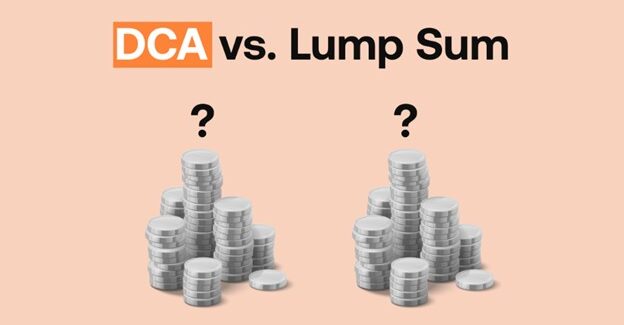The complexity of tax laws can make it challenging to determine your crypto tax obligations. Both newcomers and seasoned investors may require assistance in understanding their responsibilities. Failure to report your crypto activity on your tax return or pay taxes on time can result in a substantial tax bill. To help you decide whether you need a crypto tax accountant after buying, selling, or exchanging crypto, we’ve created a guide.
Do You Have to Pay Taxes on Crypto?
According to the IRS, crypto is classified as property, and any profit you make from selling, exchanging, or trading it is subject to taxes. The amount of tax owed depends on your annual income, filing status, and the duration of time you held the crypto before selling or exchanging it.
When you sell, exchange, or trade crypto that you have owned for less than one year, you are taxed at the short-term capital gains rates, which are equivalent to ordinary income rates. However, if you exchange or trade crypto that you have owned for more than one year, the taxes owed are based on the long-term capital gains rates, which are lower than short-term rates.
Benefits of a Crypto Tax Accountant
Crypto taxes can be complex, and failure to report crypto activity on your tax return or identify taxable transactions can result in penalties. To better understand your tax obligations, you may benefit from consulting a crypto tax accountant, who can assist you with reporting your crypto activity and filing your tax return.
Crypto Expertise
A crypto tax accountant possesses the expertise to deal with complex crypto transactions and distinguish between taxable and non-taxable ones. They can also offer valuable knowledge about crypto regulations and tax laws.
Ease
If tracking your crypto activity is a hassle due to frequent selling, trading, or swapping, a crypto tax accountant can analyze your activity and identify taxable transactions, ensuring you remain compliant with IRS reporting rules.
Savings
Additionally, a crypto tax accountant may suggest strategies to reduce the taxes you owe. For instance, selling crypto after holding it for a year can result in a lower tax rate, and selling another crypto that’s performing at a loss can help reduce taxes if you anticipate realizing crypto profits.
Understanding Crypto Tax Accountant Services
Crypto tax accountants can assist you in understanding your tax obligations regarding cryptocurrency. Apart from aiding clients in preparing their individual and corporate tax filings, they offer other valuable services.
Through tax planning, a crypto tax accountant can help you structure transactions to minimize your tax liability. They can also provide audit defense services, representing you with the IRS if necessary. Moreover, a crypto tax accountant can help ensure that you remain compliant with changes in regulations.
Crypto Tax Accountant: Factors to Consider
Despite crypto having been around for years, not every accountant is familiar with its taxation rules. Crypto transactions can be voluminous and complicated. An experienced crypto tax accountant can assist you in navigating through complex crypto activity.
Examine Past Experience
A reputable crypto tax accountant should have a track record of delivering quality work. You can check other clients’ online reviews to gauge their experience. Moreover, if the accountant holds a professional license, you can verify with the state whether they are in good standing.
Understand Taxable Events
While most crypto activity is taxable, there are some exceptions. For instance, you may pay less or no tax when you sell Bitcoin in a crypto IRA or donate crypto to a nonprofit. However, if you sell, swap, or exchange crypto at a gain, you most likely will owe tax.
The crypto tax accountant should have a good understanding of which crypto transactions are taxable and which ones are not. If they don’t know the difference between taxable and nontaxable crypto, you may unexpectedly owe tax.
Discuss Tax Strategy
A crypto accountant should be knowledgeable about tax strategies that can help reduce your tax burden. For example, they may suggest opening a crypto IRA, offsetting crypto gains with crypto losses, or waiting to sell crypto until you have owned it for a year. A crypto accountant can be a valuable resource to minimize your crypto taxes.
Document Preparation
Even if you use a crypto tax accountant to prepare your returns, you still need to monitor your crypto activity and retain copies of any reports you receive. Ensure that you retrieve any documents that you’ve given to your crypto accountant to prepare your return and store them in a secure location.
Engage in Frequent Conversations
You do not have to wait until tax time to communicate with your accountant. A crypto tax accountant who is familiar with changing tax laws and regulations can provide valuable information at any time of the year.
Why Hire a Crypto Tax Accountant?
Having a crypto tax accountant can be beneficial if you engage in crypto activity. As seasoned tax professionals, they can help you comprehend your tax responsibilities and what you should report on your return. If you are investing for retirement, they can also offer advice on contribution limits and withdrawals. When you collaborate with a crypto tax accountant, they can provide tax strategies that align with your financial situation.
Frequently Asked Questions
Q: Can you face consequences for not reporting crypto on taxes?
A: Yes, if you neglect to report crypto sales, exchanges or trades on your tax return, you may incur penalties and interest.
Q: Is it necessary to hire an accountant for crypto?
A: Hiring a crypto tax accountant can be advantageous when filing your tax return. However, if you can keep track of your crypto activity and are confident in filing your taxes on your own, you may not require the services of a crypto tax accountant.
Q: Do you need to report crypto transactions under $600?
A: Yes, you must report crypto transactions under $600 if you experience a gain or loss, which constitutes a taxable event.









 3,500+ 5-Star Reviews
3,500+ 5-Star Reviews